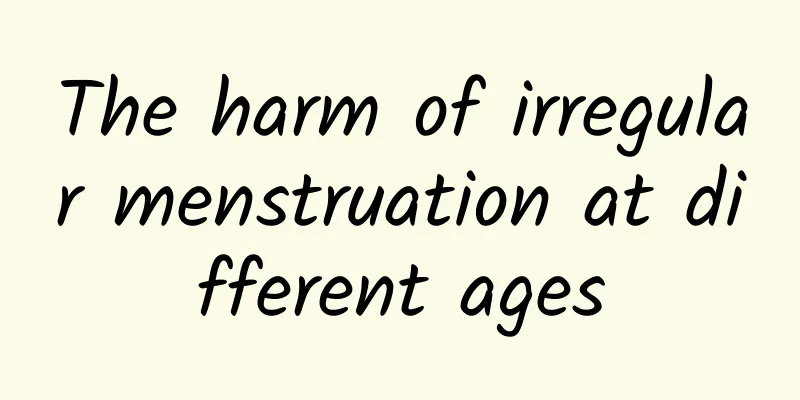How to cure menstrual disorders after abortion

|
How to cure menstrual disorders after abortion? Some women are in a bad mood for a long time due to great psychological pressure after abortion, which may affect the endocrine system and then affect menstruation, resulting in menstrual disorders. So, how to cure menstrual disorders after abortion? Let's take a look at the specific introduction. Menstrual disorders are common complications after abortion. As long as you pay attention to conditioning, you can recover. The time it takes to recover from abortion varies greatly from person to person. Most women will have a menstrual cycle about one month after surgery or the same as before, and the amount of blood in the menstrual cycle is the same as the original menstrual cycle or slightly more than the menstrual cycle. A small number of women may have their menstrual cycle function affected by artificial abortion. If a woman's menstruation has not come for a long time after an abortion, or she has obvious dysmenorrhea, reduced menstrual flow, or abnormal menstrual blood color, she should go to the hospital for examination in time to confirm the cause and receive symptomatic treatment to avoid affecting her future fertility. After artificial abortion, the ovaries can generally resume ovulation within 22 days, and menstruation will occur in about 1 month. However, a few women experience menstrual disorders such as prolonged menstruation, irregular cycles, and amenorrhea after artificial abortion. This situation generally returns to normal after 2-3 months, and a few people last longer. The menstrual situation after artificial abortion also varies according to the number of days of pregnancy and individual physical constitution. Women with menstrual disorders after miscarriage should adjust their diet and take good rest. Sexual intercourse is prohibited during the first month of confinement, and vaginal hygiene should be maintained. They should consume more calcium-rich foods such as milk and dried fish. Coffee, tea and other beverages will increase anxiety and restlessness. Vegetables, fruits, whole grains, whole wheat bread, brown rice, oats and other foods contain more fiber, which can promote the discharge of estrogen, increase the magnesium content in the blood, and have the effect of regulating menstruation and calming nerves. |
<<: How to cure post-abortion infection
>>: Can menstrual disorders after abortion be cured?
Recommend
What causes spontaneous abortion?
Spontaneous abortion may be caused by chromosomal...
Everyone should pay attention to the traditional Chinese medicine treatment method for irregular menstruation
Medical treatment for irregular menstruation gene...
Trends in age at menopause
In recent years, the age of menarche has tended t...
How to treat uterine fibroids? What are the treatments for uterine fibroids?
How to treat uterine fibroids? I believe many peo...
Can microwave treatment be used to treat cervical erosion during breastfeeding?
Can cervical erosion be treated with microwaves d...
A-mei gained weight by drinking 3 cups of drinks a day? Eat about 9 bowls of rice
Even the queen A-mei Chang can’t resist the tempt...
What are the symptoms and causes of cervical erosion? Detailed explanation of the causes and manifestations of cervical erosion
Cervical erosion is a gynecological disease that ...
The main symptoms of vulvar leukoplakia
Vulvar leukoplakia is a gynecological disease, an...
What foods and fruits should not be eaten for uterine fibroids?
Uterine fibroids are a common gynecological disea...
How to prevent uterine contractions and dysmenorrhea?
Dysmenorrhea is a kind of pain that many women ex...
What to do if you have premature ovarian failure
The ovaries are the reproductive organs of women ...
Analysis of the hazards of endometrial tuberculosis
Endometrial tuberculosis is one of the common gyn...
Cell regeneration and repair osmotic therapy is expected to overcome vulvar leukoplakia
"Cell regeneration and repair factor penetra...
What causes postmenopausal uterine bleeding?
Regarding the causes of menopause, we must analyz...
Can pelvic effusion be cured?
Gynecological diseases have always been a very tr...









